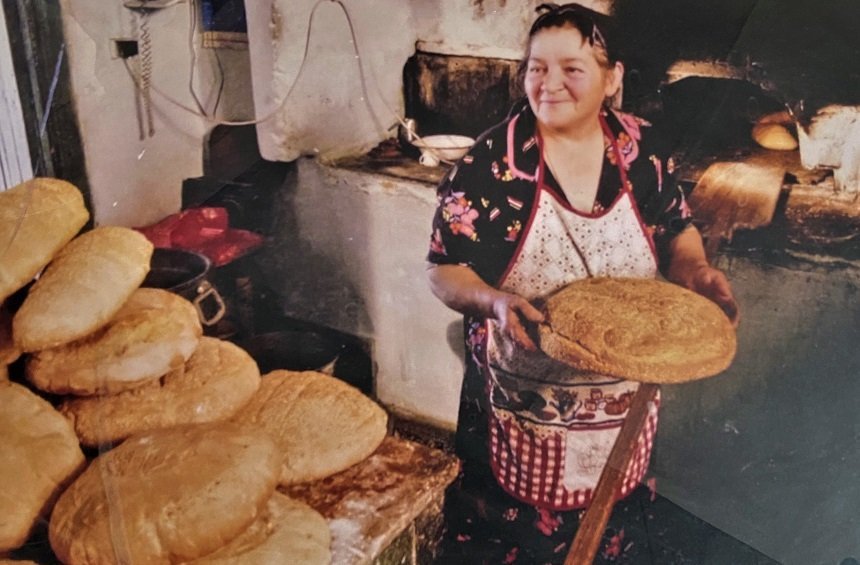
It is one of the most beautiful buildings in the Limassol mountain region, and, as is with all buildings, its story and image is made all the more remarkable thanks to the people behind it.
To this day, the building houses the first professional bakery of the village of Arsos, with Rodoula and Kyros carrying on the tradition of baking the same fragrant bread for more than half a century. The bakery was founded in the 1940s by by Themistocles Psilogenis, who returned to Arsos from Africa and brought with him a sizeable nest egg, as well as knowledge and experience he picked up from a different corner of the world.
There, in the two-story building with the impressive colonial architecture (the green shutters and red tiled roof are common characteristics), he installed a modern gas-powered kneader and petrol-fueled oven, creating for the first time a mass production bakery that adhered to the traditional recipe of sourdough bread.
The upper floor of the building once housed the residence and office of the village doctor, Artemis, and his wife Panayiota. Kyros and Rodoula are its current residents.
The first bakers were Themistocles’ brother, Yiannis, and his wife. Later, a man called Lefteris Mantrides took over, and nicknamed Mantipas (‘mantzipia’ was the name of the amateur ovens in the homes of the women of the village, who would make bread for themselves as well as to sell in their own village and in neighboring villages).
In the mid-1960s, a newlywed couple, Kyros and Rodoula, were just beginning their life in the village. “I was 16 years old when I got married and came to Arsos,” recalls Rodoula, who originally comes from Amargeti in Paphos. “We didn’t know the art of baking, but my husband thought purchasing the bakery was a good opportunity. We brought someone in for a couple of days to show us how to bake, and that eventually became our livelihood,” she adds.

Kyros and Rodoula at the entrance of the bakery.
For more than 50 years, their routine has remained unchanged: “We get up at 4 to begin kneading the dough and start baking,” says Rodoula, who has now undertaken the bulk of the work at the bakery due to her husband’s health problems. “By the time we take the bread out of the oven and clean it, it’s noon and that’s when our own cooking and housework begins,” she explains.
And so, the life of an entire family was built around the operation of the bakery. “I worked at the bakery as normal when I was pregnant. I only stopped for a few days, when I gave birth, and then I went right back to work,” says Rodoula. Their baking has allowed the couple to raise 4 children and send them to university.

This unusually large type of bread is made for the name days celebrated in the church of the village.
At the same time, dozens of other children in the village grew up with the characteristic taste and aroma of this sourdough bread. At the time when school lunches were still being served, children would eagerly volunteer to transport the bread, in order to savor its aroma a little bit longer.
The breads of Arsos would also make their way to Platres during the summer months, when demand would increase due to the arrival of the tourist population.
Today, the children have become adults, yet they still prefer their bread and buns straight from Rodoula’s hands. Stubbornly standing the test of time, despite the difficulty of their profession, these two bakers of Arsos have upheld a tradition. Along with it, a historic building - a real gem for the village - is preserved, as are the memories of those who tasted the deliciousness of the bread of Arsos.
* NOTE: The tributes of the Project "History of Limassol" present information that has emerged from historical research thus far. Any new data is embedded into the tributes, once it has been confirmed.